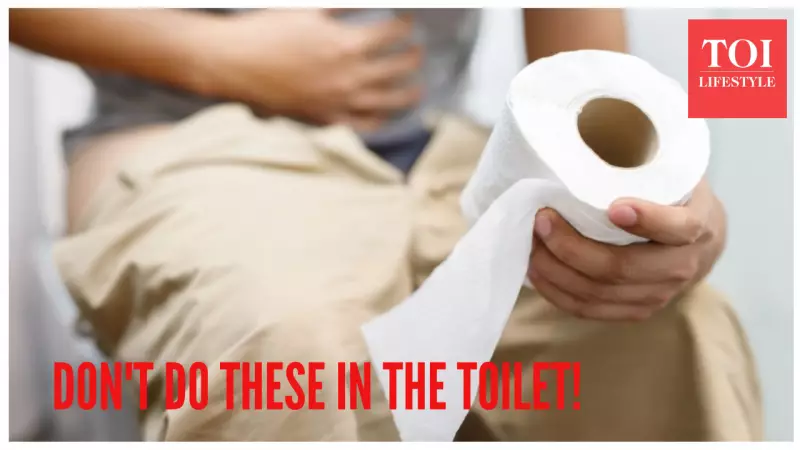
When it comes to maintaining optimal colorectal health, sometimes what you don't do matters more than what you do. We spoke with a top colorectal surgeon who revealed the five common practices they strictly avoid in their daily life - and the compelling medical reasons behind these choices.
1. The Wet Wipe Trap: Why This Surgeon Says No
While moist wipes might feel cleaner, our expert never uses them. "Many wipes contain alcohol, fragrances, and chemicals that can irritate sensitive anal tissue and disrupt the natural protective barrier," explains the surgeon. Instead, they recommend plain water cleansing or fragrance-free, pH-balanced alternatives if necessary.
2. The Straining Struggle: A Red Flag You Shouldn't Ignore
Straining during bowel movements is a major no-no. "When you strain, you're increasing pressure in the abdominal cavity significantly, which can lead to hemorrhoids, pelvic floor dysfunction, and even anal fissures," warns the specialist. If you find yourself regularly straining, it's time to address the root cause through diet and lifestyle changes.
3. Ignoring Nature's Call: The Dangerous Delay
Our colorectal expert never postpones bowel movements when the urge strikes. "Holding it in can cause stool to become harder and drier, leading to constipation. Over time, this can weaken the signals between your brain and bowels," they caution. Listening to your body's natural rhythms is crucial for long-term colorectal health.
4. The Smartphone Distraction: Why Bathrooms Should Be Tech-Free
You'll never catch this surgeon scrolling through their phone on the toilet. "Spending extended time sitting on the toilet increases pressure on the rectal veins and promotes poor bowel habits. The bathroom should be for business, not entertainment," they emphasize.
5. Self-Diagnosis Danger: When to Skip Google and See a Professional
Despite their extensive medical knowledge, this surgeon never self-diagnoses colorectal symptoms. "Persistent changes in bowel habits, bleeding, unexplained weight loss, or abdominal pain warrant professional evaluation. Early detection saves lives, especially with colorectal conditions," they stress.
Building Healthier Habits for Life
These avoided practices highlight the importance of mindful bathroom habits, adequate fiber intake, proper hydration, and regular medical check-ups. By understanding what habits to eliminate, you're taking proactive steps toward better digestive health and potentially preventing serious colorectal issues down the line.





